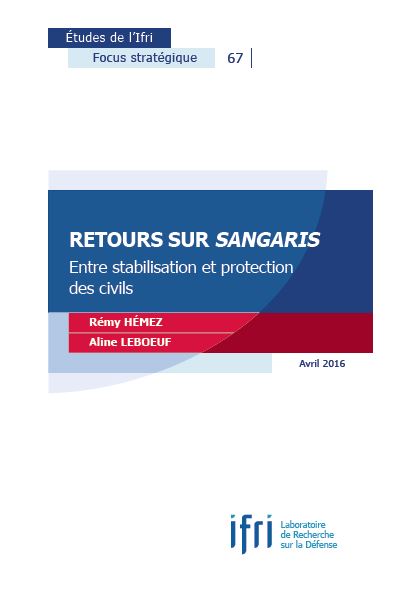Retours sur Sangaris. Entre stabilisation et protection des civils

In December 2013, France launched its operation Sangaris in the Central African Republic. What conclusions can be drawn for the stabilization of the country and the protection of civilians?
In December 2013, a decade-long political crisis in the Central African Republic descended into an aggravated civil war giving reasons to fear for mass violence along communal lines. In order to prevent further chaos, United Nations mandated France to engage in a military intervention, its seventh in this country since 1960. As a bridging operation, Sangaris aimed at setting the right conditions for the EU and UN peacekeeping missions to provide longer term security and development guidance. More than two years after its start, time has come to assess operation Sangaris’ military effectiveness in the light of the limited means it was allocated. To some extent, the operation showed how lack of resources could be offset by tactical and operational adaptations. Nevertheless, such adjustments are not risk-free and may decrease operational sustainability. The second key issue is the protection of civilians. When resources are limited, “protecting means choosing”, i.e. confronting difficult dilemmas that political and military decision-makers need to be aware of before engaging in such tasks.
This content is available in French: « Retours sur Sangaris. Entre stabilisation et protection des civils ».
Related centers and programs
Discover our other research centers and programsFind out more
Discover all our analysesThe Franco-German Brigade and the Revival of European Defense
One thing has been clear since Donald Trump's return to the White House: the very existence of the European unification project is threatened. Unless it develops a sovereign defense policy to counter the war in Ukraine and the weakening of American security guarantees, the European Union will continue to see its internal cohesion and external attractiveness wane.
Taking the Pulse: Can Europeans Build Their Independent Extended Nuclear Deterrent?
Confronted with a U.S. disengagement and the Russian threat, Europeans are reconsidering their stance on nuclear deterrence. Given the capabilities of the French and British arsenals, can Europe develop an independent nuclear deterrent?

RAMSES 2024. A World to Be Remade
For its 42nd edition, RAMSES 2024 identifies three major challenges for 2024.
A Transatlantic Defense Industrial Base? Two Contrasting Views
The evolving landscape of global defense cooperation has brought the transatlantic relationship between the United States (US) and Europe into sharp focus. As geopolitical tensions rise and the threat environment becomes more complex, the question of how Europe can best ensure its security while navigating its relationship with the United States has become paramount. This double feature report offers two contrasting views on the dynamics of US-Europe defense industrial relations, highlighting the challenges and opportunities that lie ahead for both parties.












